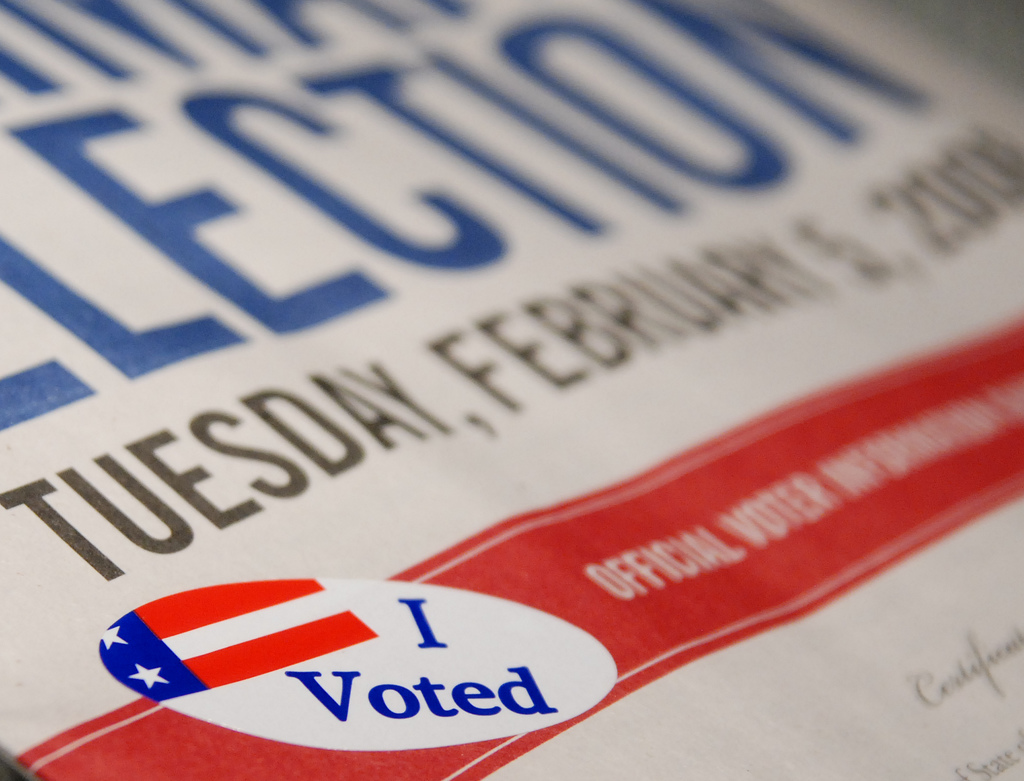Pop culture alone does not influence young voters

(Creative Commons photo by Denise Cross via Flickr)
By Lindsay Bribiescas
Feb. 19, 2016 3:33 p.m.
Popular culture is a uniting element in a country that is becoming increasingly divided, which makes it the perfect tool for politicians to seize hold of. Even better, it holds the potential to interest, although not necessarily engage the least politically-involved demographic – young people.
It has been widely known that young people have the lowest turnout rate of all age demographics. Some say this is because young people feel that there is nothing “worth voting for” because of the lack of believable plans, with many believing social activism can catalyze change more effectively than by casting a ballot, which could be supported by the high number of students interested in social issues and activism. This could also be correlated to a desire to see immediate change rather than the gradual change that playing the political game generally brings about.
Others claim that the low turnout rate can be explained by the lack of issues being discussed that directly affect them, or the increasingly nomadic tendencies of young people leads to an apathy to issues affecting specific communities. Either way, in recent elections, youth voters have become even less involved than usual. This is not to say that young people don’t know what the issues are, rather all of these explanations suggest that young people have little interest in the act of, or results from, voting. However, with the upcoming election, there is great potential that the younger demographic will step up to the plate, largely due to the greater appeal this presidential election holds for them.
But what if the interest is dependent on more than just pertinent issues? Political figures are making more of an effort recently to interact with younger audiences by engaging with popular culture. President Obama has appeared on several popular talk shows, including “Funny or Die” and “The Tonight Show Starring Jimmy Fallon,” and the current presidential candidates have appeared on television shows as well, including “Saturday Night Live,” although they appeared for different purposes.
Aside from the soft media appearances made by political figures, celebrities are also sought after to endorse candidates, and pop culture references are casually dropped into political speeches. This serves a dual purpose of making the politician more relatable and involving the younger voters. While this engagement with pop culture may pique their interest in certain topics enough to get them to vote, pop culture alone can’t increase the youth vote.
Sure, referencing a popular band or television show may make a politician more likable or more relateable to young people, but there has to be more outreach to actually get more people to vote. While affordable college tuition is certainly an important issue to discuss, more issues need to be made relevant to young voters, with clear plans to solve these issues. It’s not necessarily the politicians’ job to make young people care, but as politicians, they stand to gain – or lose – the most from a larger electorate. Soft media appearances are an easy way to build a fun reputation and get a candidate’s name out there, but such appearances also make it easy to avoid answering policy questions in great detail without any visible opposition, as Bernie Sanders did on “Jimmy Kimmel Live!” concerning free college tuition. With larger audiences and often less politically-involved viewers, it’s far simpler to get away with vague, sweeping statements that are often exciting if not necessarily plausible.
Pop culture alone cannot swing the youth vote. In an era where teenagers are constantly told that their opinions don’t matter, it can’t hurt to remind them that their votes can help turn an election. But reminders of this only go so far. There needs to be visible results, a clear attempt made to solve the issues that candidates talk about; only then will young voters feel something will come of their vote, as opposed to their activism.


